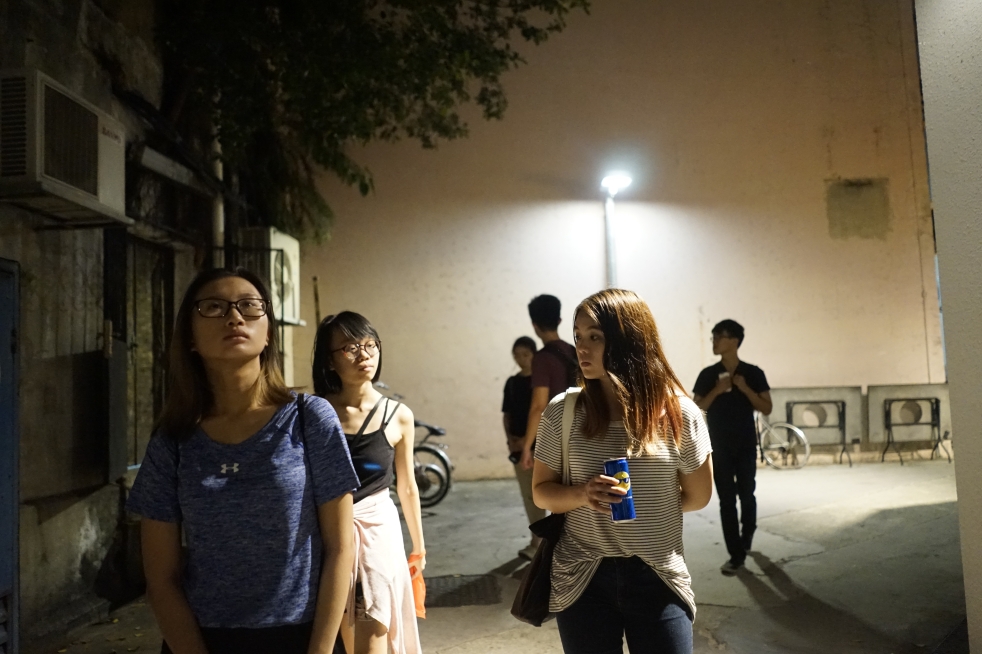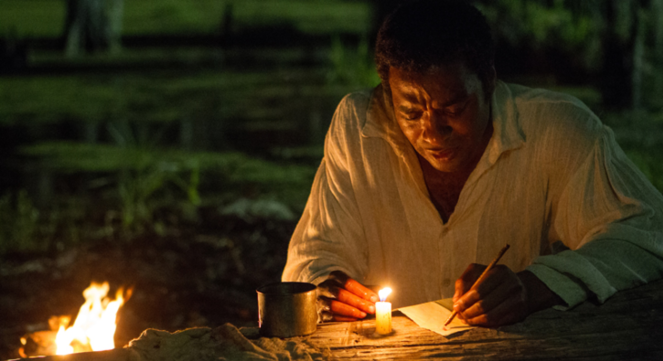[Image credit: Geylang Adventures]
While we might love adventures, we are unwilling to venture into scary places where the unknown or ‘other’ exists, and we unfortunately deprive ourselves.
Darkness has a negative connotation. Darkness provokes an instinctual aversion, representations of some place best left alone, buried and unexplored. It engulfs the road less travelled.
Buried deep within our individual unconscious, darkness is rendered voiceless, as we seek to portray our most desirable face. If outward manifestations of life mirror our collective consciousness, by extension, we live in such a divided world. Poverty exists alongside wealth, but they are simultaneously worlds apart, seemingly distinct entities. Races and nations terrify one another, as if common grounds of our fundamental humanness have been usurped by colour and identities. The world is as fragmented as our individual selves.
The reason why the world lacks unity, and lies broken and in heaps, is, because man is disunited with(in) himself.
– Ralph Waldo Emerson
The world is vast. Some of us could care less. Still, it provides a mirror reflection – through everyday interaction with it – of ourselves, and where we need healing. But, healing is a ‘feminine’ word, one that only the broken and withered down would associate with, we suppose.
Yet, in healing, we must do battle; we must acknowledge and confront our dark side. Therefore, it is more associated with purpose than we think. Purpose, a ‘masculine’ word carrying intent and direction. Something we’re all figuring out. Something that matters for a meaningful existence.
We have all heard of stories of people with a dark past, who have healed, fought, and now claimed to live stronger, purposeful lives. What we aren’t normally acquainted with is knowledge of how to work with forces in the nourishing dark, to tap into potency.
Geylang: Dark alleys and “white knights”
Geylang. A neighbourhood notorious for its less than glamorous red-light district. Where migrants, street sellers, gamblers, and sex workers gather.
Now a highly regulated place where the illegal sale of sex drugs and sex solicitors are increasingly driven out of sight, by surveillance cameras, stepped up police patrols and occasional raids. Even bright lights now light up most alleys – darkness disappears.
At least, on the surface. Geylang seems more cleaned-up. Do these problems really go away?
They don’t. A cleaned up neighbourhood does not indicate a safer sex industry. Physically wiping out the ‘dark’ elements never resolves, but relocates these problems into underground spaces. Now, partly due to law and policy enforcements, sex work is increasingly driven into online spaces, private apartments and the heartlands where they become less visible. The consequence? There is greater danger of abuse behind closed doors, and the struggles of sex workers – merely finding a way to live better – go unheard. They continue to be cast in the shadows.
Geylang, however, is not an exception. Problems concerning marginalised communities manifest in countless neighbourhoods across the world. Why do educated politicians fail to appropriately tackle these issues?
Robert Bly offers an interesting perspective of how each individual lives through the evolution of ‘red’, ‘white’, and ‘black’ stages in one’s lifetime. ‘White’ stands for the fight for the good cause. ‘Red’, however, stands for the expression of anger, aggression and a fight for what is his or hers – what matters to the individual. The ‘red’ happens on a more selfish, personal level, and is lowly, unglamorous, disdainful and uncultured.
Yet, it is necessary to not bypass the ‘red’ stage. One who bypasses the ‘red’ knows not what he stands for, nor what he truly wants to fight for or against.
The danger with the white knight stage in our culture is that he is often insufferable because he has not lived through the red.If a man hasn’t lived through the red stage, he is a stuck white knight who will characteristically set up a false war with some concretised dragon, such as Poverty or Drugs.– Robert Bly, in Iron John
Politicians – in general – are white knights fighting for the common good. Intellectually and positionally, they are our representatives, advocates, and the moral crusaders. They are expected to be, and have to look ‘white’. Yet, not many politicians have walked the dark alleys, where trouble brews and voices count. There remains a disconnect between policies formulated and the realities of everyday living. Formulating policies from comfy walled offices neglects much of the actual transactions and conflicts that happen on the ground, or underneath. Voices go unheard, and trouble only grows silently darker with resentment.
Differences persist. The neighbourhood stays fragmented. Me vs You. Us. And Them. Dawn does not come before the night.
Ironically in Geylang, the ‘light’ of religious institutions co-exists with the ‘dark’ of brothels; they contradictorily co-exist as the religious institutions provide outreach to sex workers, engaging them on occasions or religious events. The dark aspects could not be eradicated, but are to be embraced and integrated.
Using the nourishing dark to know what we stand for
Clearly, it is through walking the lowly terrains of life that enable us to extend appropriate help to those in need, by essentially seeking to understand difference. To relieve suffering, its experience must first be understood.
Likewise, the metaphorical ‘dark alley’ refers to the suppressed places within us, where fear lingers. The suppressed ‘dark’ which was unbearable is now given permission to be felt, so that the self might eventually experience goodness through darkness rather than by fighting against it – this goodness is now of a different quality, that of deliverance. Herein lies the opportunity for transformation of the self, and by extension, the world.
Service comes with knowing with a better idea what we would truly stand for, after having experienced the lowly Earth. This is a process of stretching and nourishing the depths of one’s spirit, akin to exercising a muscle by breaking it down and building it up stronger.
Tapping into the potency that lies within the dark, its potential is unleashed; the ‘dark’ becomes a nourishing force that now drives us forward with purpose.







